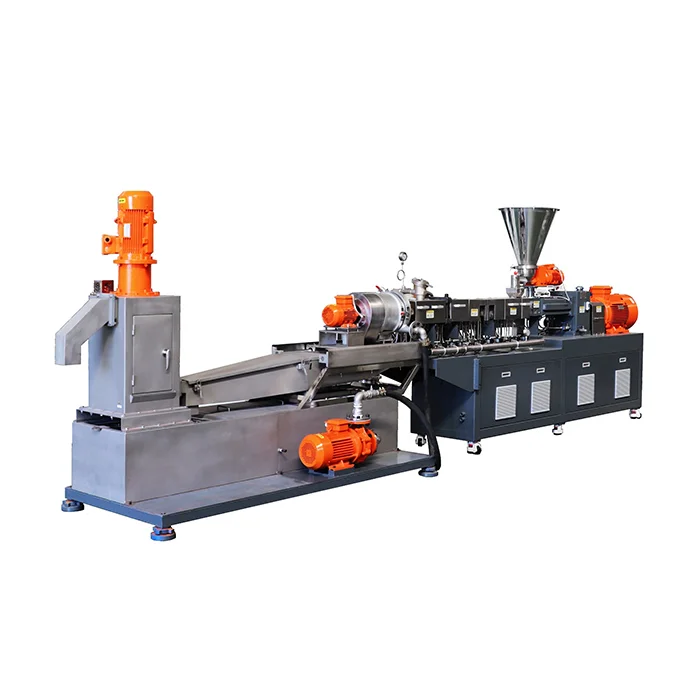Top Applications and Advantages of Using a Lab Extruder in Material Research

In the field of polymer science and material engineering, precision testing and development equipment play a crucial role in driving innovation. Among these tools, the lab extruder has become an indispensable instrument for researchers and manufacturers striving to understand, optimize, and develop new material formulations. By simulating large-scale extrusion processes on a smaller, more controlled scale, lab extruders enable efficient experimentation, accurate data collection, and cost-effective material innovation.

What Is a Lab Extruder?
A lab extruder is a compact extrusion system designed for laboratory-scale research and development. It is primarily used to process and test small quantities of materials such as polymers, plastics, rubbers, and composites. Lab extruders replicate the same mechanical and thermal conditions found in industrial extrusion lines, allowing researchers to study how materials behave under specific temperature, pressure, and shear conditions — without the high costs of full-scale production.
Companies like Jiangsu Kaifeng Xinye Intelligent Equipment Co., Ltd. have become industry leaders in this field. Dedicated to promoting innovation in the machinery industry, the company specializes in foam extrusion, plastic compounding, and intelligent extrusion technologies. With years of expertise and a strong focus on R&D, Jiangsu Kaifeng Xinye provides high-performance lab and production extruders that support both research institutions and industrial manufacturers worldwide.
Key Applications of Lab Extruders
1. Polymer Formulation and Compounding Research
Lab extruders are widely used to develop and test polymer blends, masterbatches, and additives. By adjusting processing parameters such as temperature, screw speed, and pressure, researchers can evaluate material compatibility, color dispersion, and mechanical properties. This helps identify the optimal recipe before scaling up production.
Jiangsu Kaifeng Xinye’s lab extruders are designed with precise temperature control and customizable screw configurations, enabling researchers to simulate real-world compounding conditions with high repeatability and accuracy.
2. Foam Extrusion and Lightweight Material Development
With the rising demand for lightweight materials in packaging, automotive, and construction industries, foam extrusion has gained significant importance. Lab extruders allow researchers to fine-tune blowing agent concentrations, gas injection levels, and die designs to achieve desired foam structures and densities.
Kaifeng Xinye’s advanced extruder systems provide ideal conditions for studying foam expansion and stability, helping manufacturers create energy-efficient, lightweight, and sustainable materials.
3. Material Testing and Quality Control
Before scaling up to industrial production, materials must undergo rigorous testing to ensure consistency, performance, and durability. Lab extruders make it possible to process small batches for evaluating thermal stability, melt flow index, tensile strength, and other critical properties.
These insights are essential for developing new grades of plastics, elastomers, and composites. Jiangsu Kaifeng Xinye’s intelligent extrusion systems offer real-time monitoring and data acquisition, giving researchers precise control over testing conditions and outcomes.
4. Process Optimization and Scale-Up Studies
One of the greatest advantages of lab extruders is their ability to bridge the gap between R&D and industrial production. Researchers can optimize screw design, processing temperatures, and feed rates in the lab and then directly apply these findings to larger-scale extruders.
With Kaifeng Xinye’s intelligent control systems, parameters can be seamlessly transferred from lab-scale to pilot or industrial-scale machines, minimizing trial-and-error and reducing time to market.
5. Bioplastics and Sustainable Material Development
As industries move toward sustainability, biodegradable and bio-based polymers are at the forefront of material innovation. Lab extruders allow scientists to test starch blends, PLA, and other renewable polymers, evaluating how they process under extrusion conditions and how additives can improve their performance.
Jiangsu Kaifeng Xinye’s commitment to green manufacturing technology supports this global shift, providing versatile lab extrusion solutions that contribute to the development of eco-friendly materials.
Advantages of Using a Lab Extruder
-
Small Batch Efficiency – Enables testing of limited material quantities, reducing waste and costs.
-
High Precision Control – Advanced temperature, torque, and pressure regulation ensure reproducible results.
-
Versatility – Suitable for various materials, from thermoplastics to elastomers and composites.
-
Data-Driven Optimization – Real-time monitoring and digital analysis enhance research efficiency.
-
Scalability – Laboratory results can be easily scaled to pilot or production levels, accelerating commercialization.
Conclusion
The lab extruder is more than just a piece of testing equipment — it’s a bridge between material research and industrial application. By offering precise control, flexibility, and scalability, it empowers researchers to innovate faster and smarter.
Jiangsu Kaifeng Xinye Intelligent Equipment Co., Ltd. continues to lead the way in extrusion technology, offering intelligent lab and industrial extruders that drive breakthroughs in foam extrusion, plastic compounding, and sustainable materials development. Through continuous innovation and a dedication to quality, Kaifeng Xinye is helping shape the future of advanced material research and intelligent manufacturing.
www.kaifengmachine.com
Jiangsu Kaifeng Xinye Intelligent Equipment Co., Ltd.